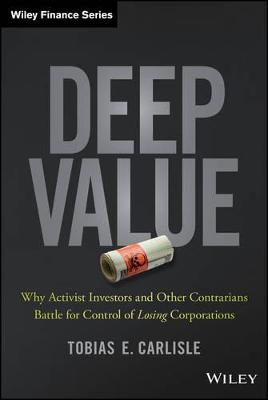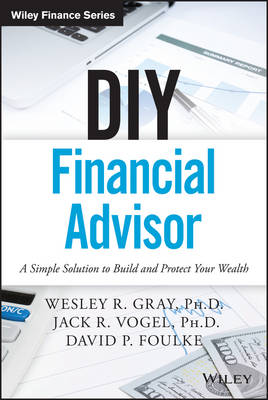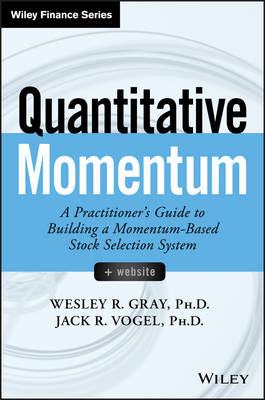Wiley Finance
4 total works
Deep Value enumerates and expands upon the resources and strategies available to value investors today, and describes how the economic climate is allowing value investing to re-emerge. Topics include: * Target identification, and determining the most advantageous ends * Strategies and tactics of effective activism * Unseating management and fomenting change * Eyeing conditions for the next M&A boom Activist hedge funds have been quiet since the early 2000s, but economic conditions, shareholder sentiment, and available opportunities are creating a fertile environment for another golden age of activism. Deep Value: Why Activist Investors and Other Contrarians Battle for Control of Losing Corporations provides the in-depth information investors need to get up to speed before getting left behind.
DIY Financial Advisor
by Wesley R. Gray, Jack R. Vogel, and David P. Foulke
DIY Financial Advisor: A Simple Solution to Build and Protect Your Wealth
DIY Financial Advisor is a synopsis of our research findings developed while serving as a consultant and asset manager for family offices. By way of background, a family office is a company, or group of people, who manage the wealth a family has gained over generations. The term 'family office' has an element of cachet, and even mystique, because it is usually associated with the mega-wealthy. However, practically speaking, virtually any family that manages its investments—independent of the size of the investment pool—could be considered a family office. The difference is mainly semantic.
DIY Financial Advisor outlines a step-by-step process through which investors can take control of their hard-earned wealth and manage their own family office. Our research indicates that what matters in investing are minimizing psychology traps and managing fees and taxes. These simple concepts apply to all families, not just the ultra-wealthy.
But can—or should—we be managing our own wealth?
Our natural inclination is to succumb to the challenge of portfolio management and let an 'expert' deal with the problem. For a variety of reasons we discuss in this book, we should resist the gut reaction to hire experts. We suggest that investors maintain direct control, or at least a thorough understanding, of how their hard-earned wealth is managed. Our book is meant to be an educational journey that slowly builds confidence in one's own ability to manage a portfolio. We end our book with a potential solution that could be applicable to a wide-variety of investors, from the ultra-high net worth to middle class individuals, all of whom are focused on similar goals of preserving and growing their capital over time.
DIY Financial Advisor is a unique resource. This book is the only comprehensive guide to implementing simple quantitative models that can beat the experts. And it comes at the perfect time, as the investment industry is undergoing a significant shift due in part to the use of automated investment strategies that do not require a financial advisor's involvement. DIY Financial Advisor is an essential text that guides you in making your money work for you—not for someone else!
Quantitative Momentum brings momentum investing out of Wall Street and into the hands of individual investors. In his last book, Quantitative Value, author Wes Gray brought systematic value strategy from the hedge funds to the masses; in this book, he does the same for momentum investing, the system that has been shown to beat the market and regularly enriches the coffers of Wall Street's most sophisticated investors. First, you'll learn what momentum investing is not: it's not 'growth' investing, nor is it an esoteric academic concept. You may have seen it used for asset allocation, but this book details the ways in which momentum stands on its own as a stock selection strategy, and gives you the expert insight you need to make it work for you. You'll dig into its behavioral psychology roots, and discover the key tactics that are bringing both institutional and individual investors flocking into the momentum fold.
Systematic investment strategies always seem to look good on paper, but many fall down in practice. Momentum investing is one of the few systematic strategies with legs, withstanding the test of time and the rigor of academic investigation. This book provides invaluable guidance on constructing your own momentum strategy from the ground up.
- Learn what momentum is and is not
- Discover how momentum can beat the market
- Take momentum beyond asset allocation into stock selection
- Access the tools that ease DIY implementation
The large Wall Street hedge funds tend to portray themselves as the sophisticated elite, but momentum investing allows you to 'borrow' one of their top strategies to enrich your own portfolio. Quantitative Momentum is the individual investor's guide to boosting market success with a robust momentum strategy.



